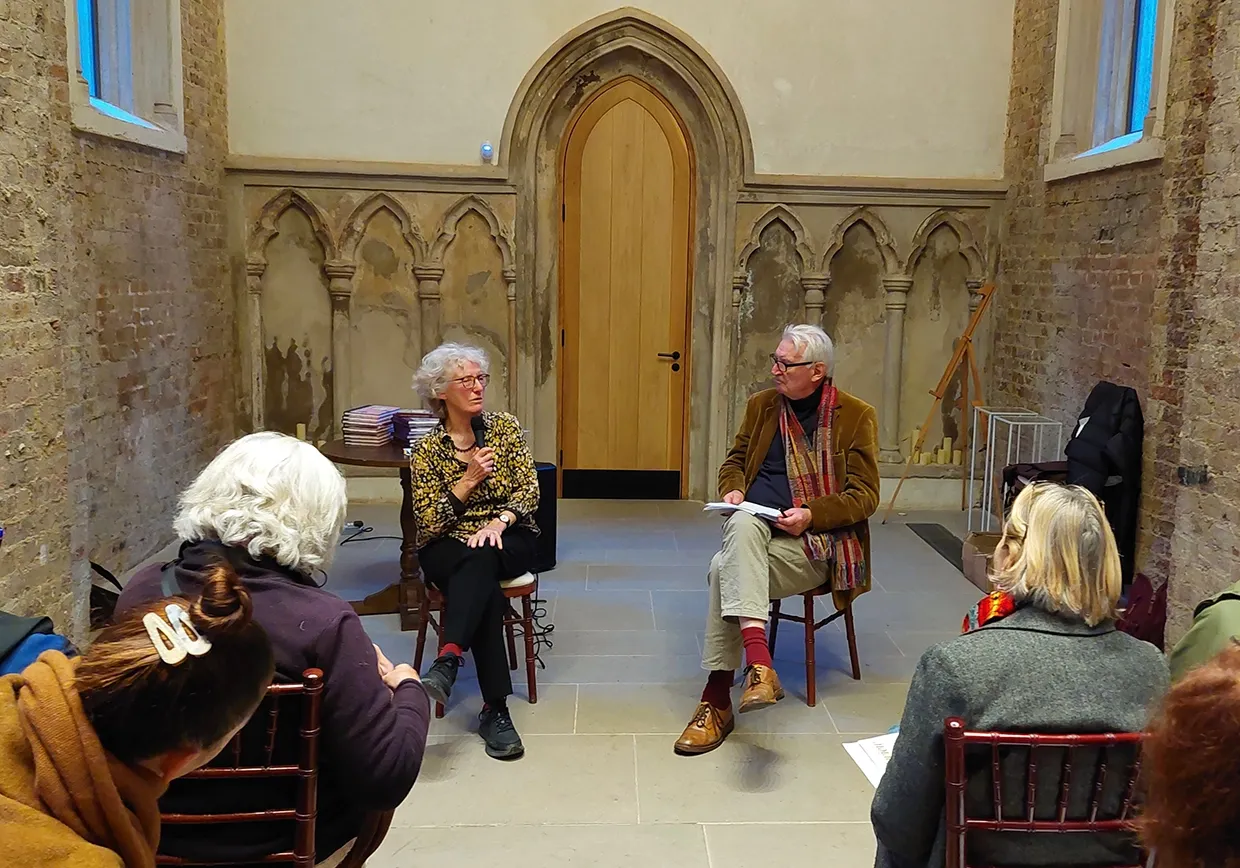Pink stained-glass windows frame the restored Abney Park Chapel, standing proudly out from the overgrown greenery spilling across the cemetery.
There, a small crowd gathered for the final event in the Radical Writers series, hosted by Abney Park Trust. Some 200 years earlier, Anna Laetitia Barbauld - a leader in the Enlightenment, poet and women’s rights activist - lived just down the road on Stoke Newington Church Street.
You may not recognise her name, as Barbauld and her works have largely lost their place in the history books - but the hosts of this event wanted to ensure she would not be forgotten.
Held around the anniversary of Barbauld’s death on a Sunday in early November, the discussion was led by professor, biographer, and critic, Norma Clarke.
She was joined by writer and social historian Ken Worpole as she gave an in-depth talk on the radicalism that defined the life of this often-overlooked literary figure.
For any historian, introducing Barbauld is no easy task. Much of what we had on record about her was lost in a fire at Lincoln’s Inn in the 1940s.
Luckily, piecing together these fragments is Clarke’s specialty, having previously worked on the biography of similarly elusive literary figure Laetitia Pilkington.

What we do know about Barbauld is that she was controversial. Clarke said: “Anna Barbauld was the wicked woman in the conservative imagination.”
Before moving to Stoke Newington in 1802, she lived in Hampstead, where she was married and advocated for dissenters.
Her political writing, which she turned out fervently, often drew angry responses. In her 1793 essay Sins of Government, Sins of the Nation, she argued that England bore collective responsibility for the faults of the people in power.
Despite the tone of her writing, she existed in a time of hope for change, and a belief that individuals could be instrumental in shaping a slowly modernising world.
Barbauld was respected in the London literary scene and seen as a leader and educator. She welcomed young women to stay with her for months to learn from her and hosted a women-only reading group after moving to Hackney.
Despite her success, Barbauld’s final poem, Eighteen Hundred and Eleven, ended her career and left her bankrupt. It depicts a vision of England and Europe in ruins, which many readers interpreted as unpatriotic.
This may, in part, explain why she was largely forgotten and remains absent from school curricula and library highlights, while contemporaries like Mary Wollstonecraft are widely remembered.
Attendees to the discussion were eager to contribute. Some suggested her obscurity was partly due to the relative unpopularity of poetry compared to prose. Others argued poetry itself can feel off-putting to modern readers. Apparently, we don’t favour couplets.
Barbauld did not publish anything in the final thirteen years of her life, and we’ll never know for certain what happened to her in those years.
However, Clarke emphasised that remembering her matters because of her conviction, idealism, and commitment to social improvement.
In many ways, Barbauld’s work is even more important now - the cycles of hope, struggles for justice, and ideals she championed still feel relevant today. By keeping her memory alive, the event offered a moment of reflection on the neighbourhood’s past - as well as a sense of what might come next.
Hackney Council supported the event, collaborating with Stoke Newington Bookshop.
It was both a memorial and a revival, returning Barbauld’s name to public consciousness at least on a local level - and a reminder that voices lost for centuries can still inspire, and that the past can illuminate what is possible in the present.









